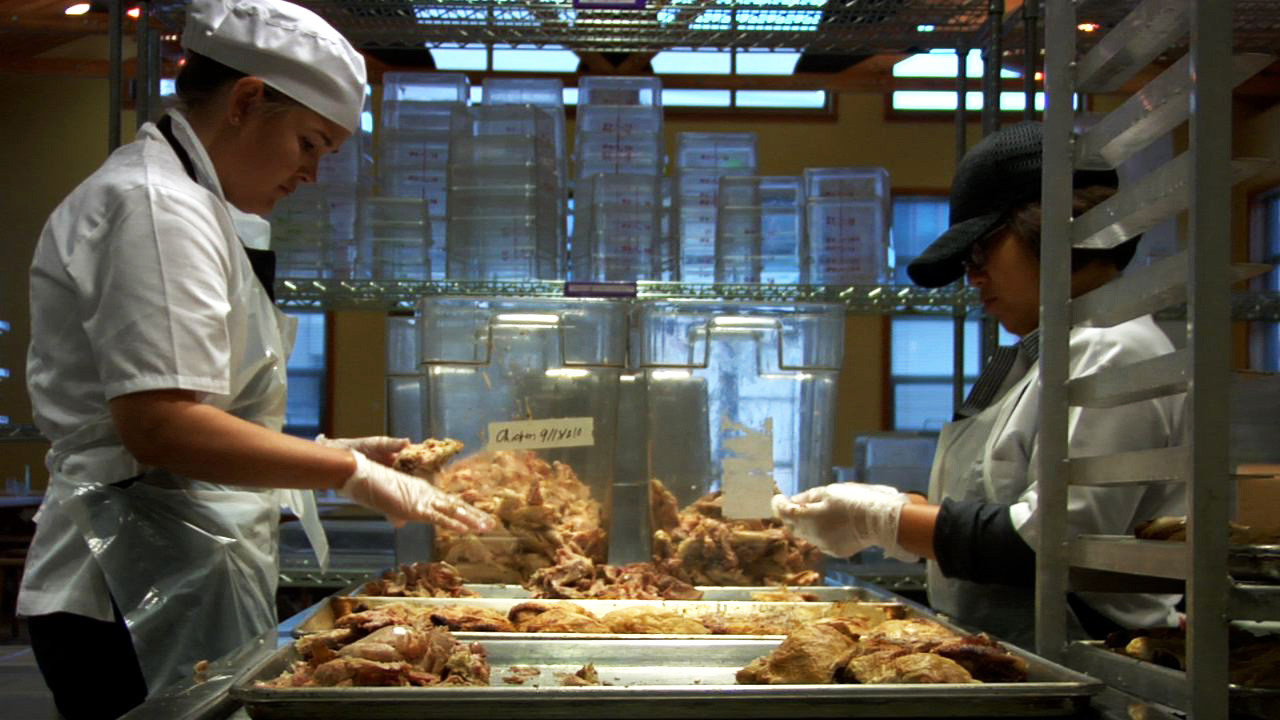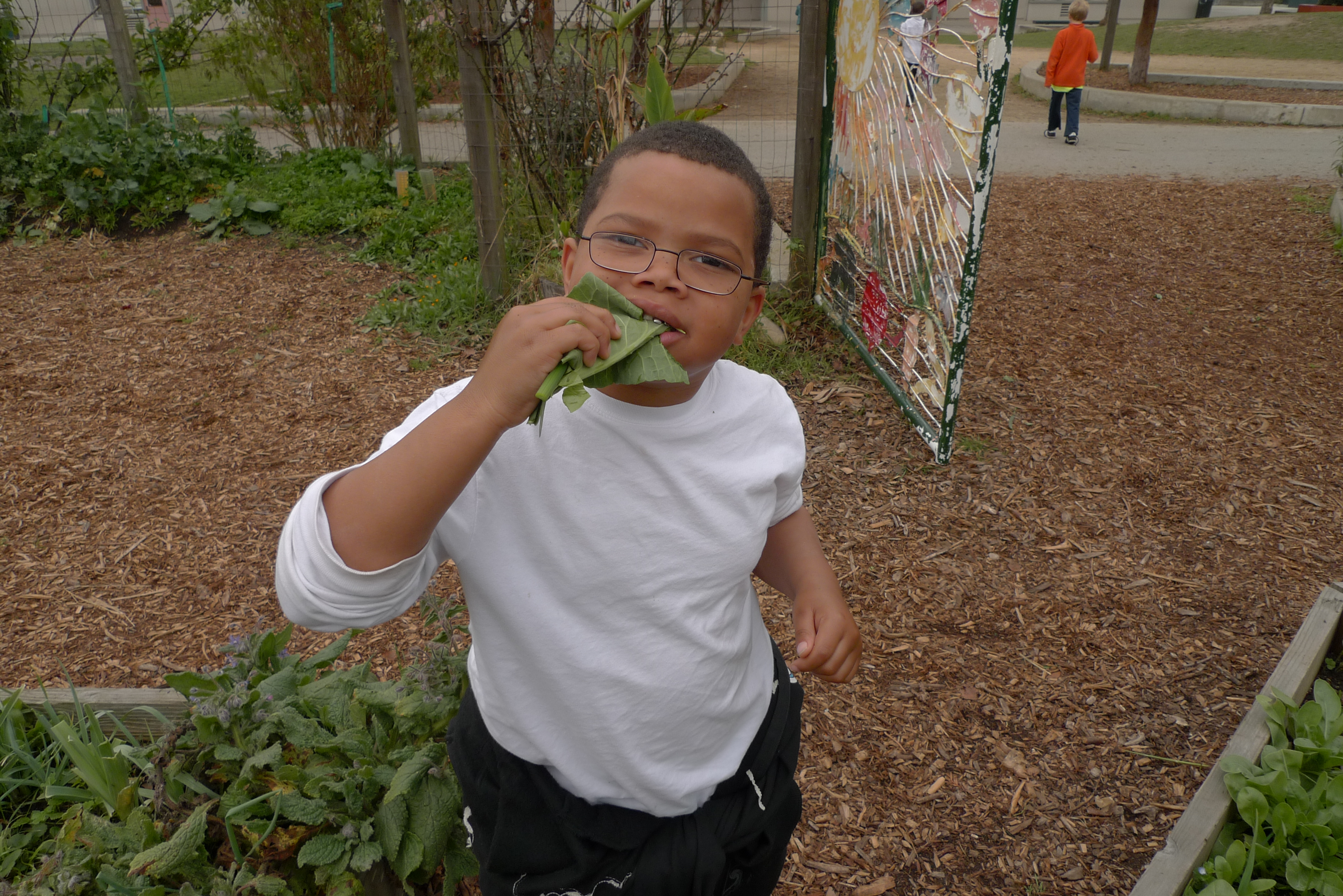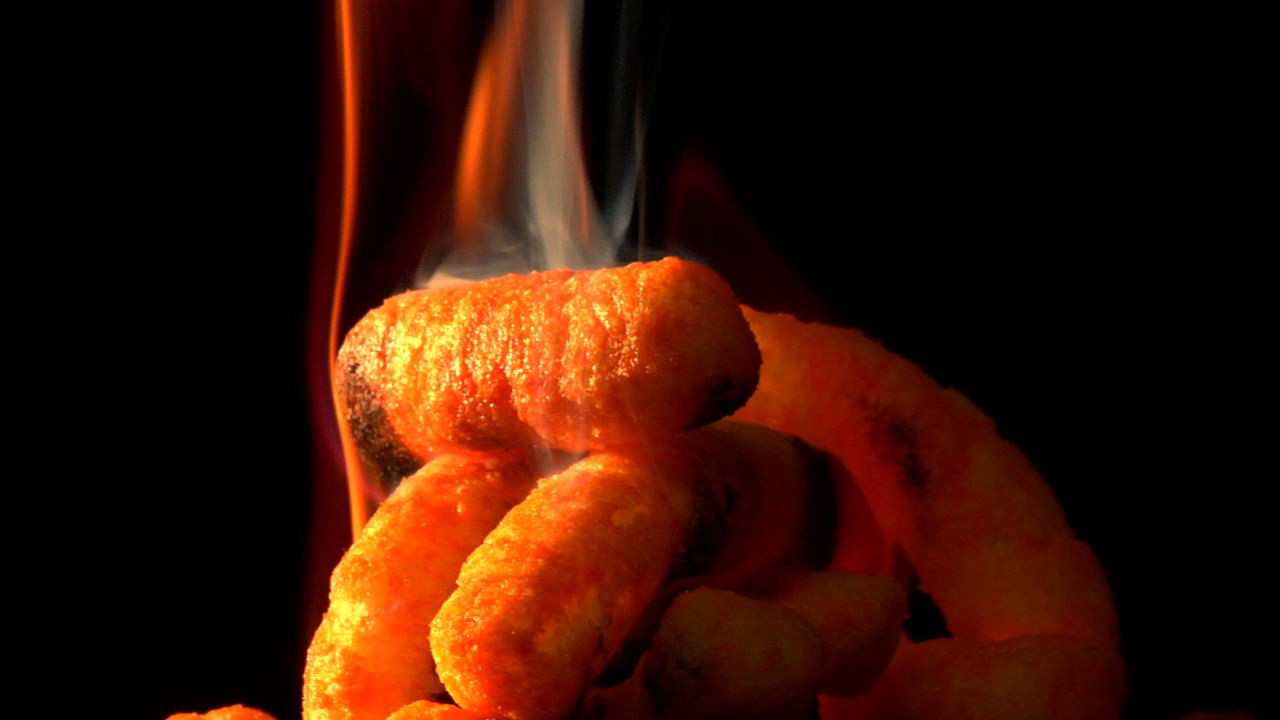Synopsis
How does a community of passionate parents, community organizers, public health experts, cooks, food zealots and politicians come together to create enduring and systemic change on the local level? How do multi-generational and multi-ethnic food system change-makers work with serious challenges to spark the political will into motion? How do we talk about health and culture, identity and responsibility through cuisine and nutrition?
Lunch Love Community is an episodic “open space documentary” that explores these questions through a mosaic of twelve short films looking at issues around food reform, health, community sustainability and citizen-based democracy. From 2010 to 2014 we created and developed a transmedia approach – from an online, interactive “watch and share” project into a completed and cohesive suite of shorts that interconnect and build upon one another. The shorts (ranging from 3 minutes to 13 minutes) zoom in on intimate and revealing stories surrounding school lunch transformation and cooking-gardening education, and zoom out to the broader social issues and consequences around these changes. The blend of children and youth, education and food ignites passions, creative energy and idealism: how we teach our children to eat and understand food is the embodiment of how we transmit values to the next generation.
The story begins in Berkeley, California (where there are quite significant income and health disparities), and explores how food justice intersects with education, local agriculture, nutrition literacy and environmental policy. With public awareness of obesity, diabetes, food security and climate change, this evolving Berkeley story is opening up conversations across the country. How can we act in a time of increasing concern in which the CDC states that one-third of American kids born in 2000 will develop type 2 diabetes before they are teens?
As an “open space documentary” Lunch Love Community can be shown on the big screen in a traditional venue, in an exhibition space, or on mobile platforms.
The collection of 12 films included in PLAY ALL order:
We Hunger For… (8 min)
Justice, opportunity, connection, equity, friendship, respect, experience, community, knowledge, health, success, love – what do I, you, we…hunger for?
Flamin’ Hot (3 min)
What happens when a group of Berkeley 6th Grade science students burn a cheese puff and test the results.
The Parent Factor (5 min)
Against all odds, a group of visionary parents come together – through ups and downs in the 1990s – to organize and change the way Berkeley children would eat in school.
Wanda (3 min)
School lunch chef Wanda McAfee-Conart reflects in her job and how it connects her to the sensory environment and to her own family history.
Feeding the Body Politic (10 min)
Through struggles and controversy, Berkeley, California parents put the democratic process to work, one neighbor, one politician, one piece of legislation at a time.
The Whole World in A Small Seed (3 min)
In Rivka Mason’s school-under-the-sky at Malcolm X Elementary, children experience cross-disciplinary learning in their school’s garden.
If They Cook It They Will Eat It (5 min
Elementary school cooking teachers Kathy Russell and Brenna Ritch awaken children to the world through the food they cook and eat with one another.
Just Produce/Food Justice (13 min)
David and Johnathan are young African-American men passionate about their jobs managing a fresh produce stand in an East Bay “food desert.” Their routine and work for Farm Fresh Choice opens up the world and its needs to them.
Labor of Lunch (5 min)
Making from-scratch meals for 5,000 kids is hard work for everyone, and it happens every day at the Berkeley Public Schools Central Kitchen.
To Feed And Be Fed (8 min)
Ann Cooper is the tough, hard working chef whose convictions drive her to reinvent herself as a school reform activist. She takes on the professional challenge to overhaul in only three short years, the neglected and dysfunctional Berkeley school lunch system.
Imperfection Salad (5 min)
Charlotte Biltekoff is the author of “Eating Right in America” where she traces the food reform movements throughout American history. She questions socially accepted ideas about “good and bad eaters” and what those assumptions reveal about food, culture, and the struggle over moral values.
But Is It Replicable? (5 min)
Visitors from West Sacramento tour the Central kitchen and Dining Commons wondering what can make a program like Berkeley’s work for them.








